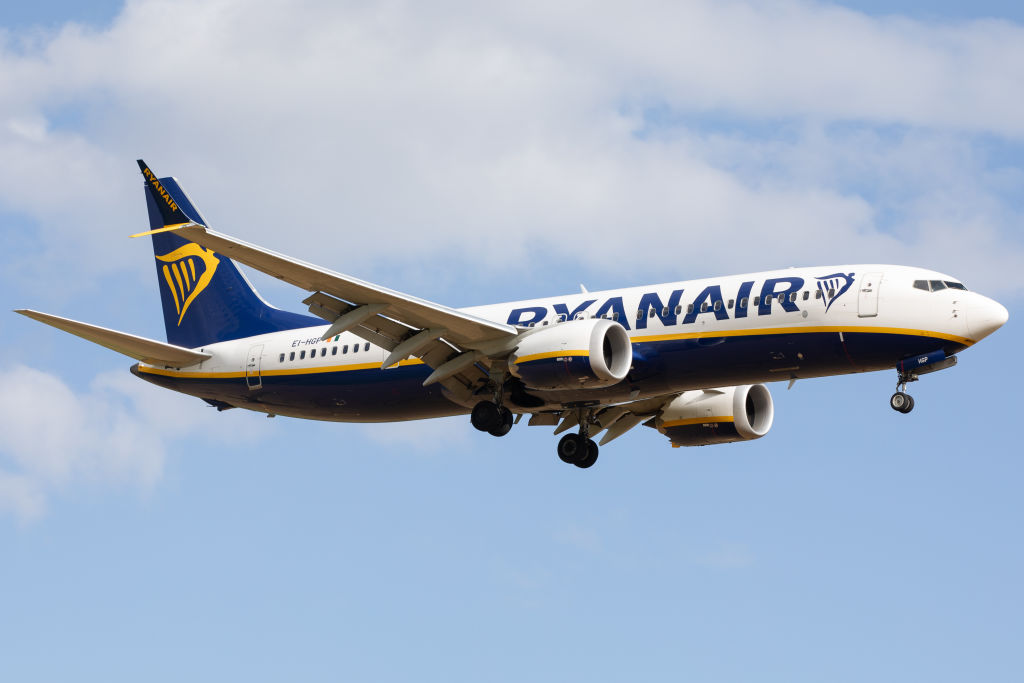Ryanair profits dive as passengers hold out for lower fares – should you invest in airline stocks?
Europe’s largest low-cost airline said on Monday that net profits had fallen by 19% to €1.79 billion for the six months to the end of September


Get the latest financial news, insights and expert analysis from our award-winning MoneyWeek team, to help you understand what really matters when it comes to your finances.
You are now subscribed
Your newsletter sign-up was successful
Want to add more newsletters?

Twice daily
MoneyWeek
Get the latest financial news, insights and expert analysis from our award-winning MoneyWeek team, to help you understand what really matters when it comes to your finances.

Four times a week
Look After My Bills
Sign up to our free money-saving newsletter, filled with the latest news and expert advice to help you find the best tips and deals for managing your bills. Start saving today!
Budget airline Ryanair has reported a fall in profit over the summer on the back of a 10% drop in ticket prices.
Europe’s largest low-cost airline said on Monday that net profits had fallen by 19% to €1.79 billion for the six months to the end of September compared to the same period last year.
Ryanair’s CEO Michael O’Leary remained positive, however. He said: “Many customers are switching to Ryanair for our lower air fares. As a result, we are capturing record share gains across most markets.”
MoneyWeek
Subscribe to MoneyWeek today and get your first six magazine issues absolutely FREE

Sign up to Money Morning
Don't miss the latest investment and personal finances news, market analysis, plus money-saving tips with our free twice-daily newsletter
Don't miss the latest investment and personal finances news, market analysis, plus money-saving tips with our free twice-daily newsletter
O’Leary put the 10% fall in average ticket prices down to factors including “consumer spending pressure” caused by higher interest rates.
Susannah Streeter, head of money and markets at Hargreaves Lansdown, said: “Ryanair has been buffeted from all sides, with consumer caution affecting demand for flights, leading to a plunge in average ticket prices by 10%.
"The worst of the wariness appears to be easing off, with falls in average fares moderating and some strong forward booking trends emerging. But nosing the performance up significantly from here, given the capacity issues still haven’t been resolved, may still be challenging."
Should you invest in airline stocks?
Airlines have rebounded strongly since the Covid-19 lockdowns in which planes were grounded and profits were severely dented.
But after a frenetic period of overseas travel after lockdown restrictions were lifted Ryanair says its average fares declined by a 10th this year amid pressures on consumer spending as a result of higher mortgage rates.
Ryanair’s boss also told journalists on Monday that the airline plans to cut flights to and from UK airports by 10% next year following Labour’s decision to increase the tax on airline tickets in the autumn Budget.
He said the move “damaged” UK growth prospects and “made air travel much more expensive”.
In the Budget last week, chancellor Rachel Reeves said air passenger duty will rise from the 2026/27 financial year, with up to £2 added to the cost of an economy ticket for a short-haul flight.
The increase will also impact other airline companies and O’Leary said it is “vital” that the UK makes it cheaper to fly.
It is also worth remembering that airlines operate in a highly competitive sector with customers ruthlessly shopping around for the lowest fare. They are also heavily exposed to fuel prices, which can contribute to volatile share price performance.
Finally, running an airline comes with a lot of costs. Buying or leasing planes, and then maintaining them, doesn’t come cheap. This often means airlines have a high debt-to-equity ratio compared to other sectors.
In short, these factors combined can make for a bumpy ride for investors. If you are looking for a smoother journey, you might prefer to put your money in a different sector.
Get the latest financial news, insights and expert analysis from our award-winning MoneyWeek team, to help you understand what really matters when it comes to your finances.
Chris is a freelance journalist, and was previously an editor and correspondent at the Financial Times as well as the business and money editor at The i Newspaper. He is also the author of the Virgin Money Maker, the personal finance guide published by Virgin Books, and has written for the BBC, The Wall Street Journal, The Independent, South China Morning Post, TimeOut, Barron's and The Guardian. He is a graduate in Economics.
-
 How a ‘great view’ from your home can boost its value by 35%
How a ‘great view’ from your home can boost its value by 35%A house that comes with a picturesque backdrop could add tens of thousands of pounds to its asking price – but how does each region compare?
-
 What is a care fees annuity and how much does it cost?
What is a care fees annuity and how much does it cost?How we will be cared for in our later years – and how much we are willing to pay for it – are conversations best had as early as possible. One option to cover the cost is a care fees annuity. We look at the pros and cons.
